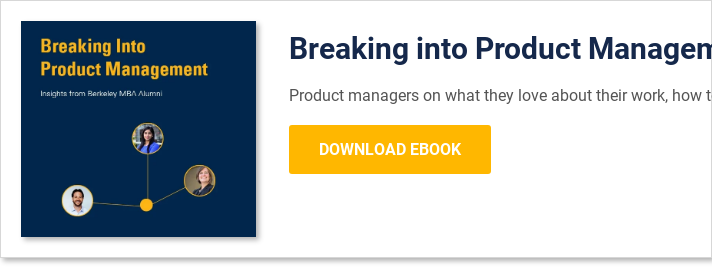Events & Promotions
|
|

GMAT Club Daily Prep
Thank you for using the timer - this advanced tool can estimate your performance and suggest more practice questions. We have subscribed you to Daily Prep Questions via email.
Customized
for You
Track
Your Progress
Practice
Pays
Not interested in getting valuable practice questions and articles delivered to your email? No problem, unsubscribe here.
- Nov 20
10:00 AM EST
-10:30 AM EST
If you’re applying to Columbia, NYU Stern, or Yale SOM, you need more than strong stats. Each school defines “leadership” differently, and your essays must reflect that. Join Sia Admissions founder, Susan Berishaj on November 20th - Nov 20
09:00 PM IST
-10:00 PM IST
Join our free expert-led Essay Workshops to discover how to choose impactful stories, highlight your core values, and align your background with each school’s distinct culture, making every word truly count. - Nov 20
07:30 AM PST
-08:30 AM PST
Learn what truly sets the UC Riverside MBA apart and how it helps in your professional growth - Nov 21
08:30 AM EST
-09:15 AM EST
Get the inside scoop on what makes Emory’s Goizueta Business School great, learn how you can present a strong MBA application, and connect with an Admissions Director to get your questions answered. - Nov 21
09:30 PM IST
-10:30 PM IST
Learn how to craft powerful, authentic essays by mastering the 3 “WHYs” every top MBA program looks for: Why MBA, Why Now, and Why This School. - Nov 24
08:00 PM PST
-09:00 PM PST
Inquire for a free profile evaluation and guarantee statement for possible admits and scholarships!
Kudos
Bookmarks
| FROM Haas Admissions Blog: 16 Benefits of an MBA |
 Earning a professional business degree, or an MBA, can have a number of both expected and unexpected benefits in your life. In fact, those benefits often extend beyond your career and professional goals and are applicable to your non-work life as well. If you’re on the fence about pursuing an MBA or attempting to weigh the benefits of earning an MBA against its cost, consider these 16 benefits. Some of them may surprise you. 16 Benefits of an MBA 1. Increased Self-Confidence One study surveyed MBA graduates about their perceived financial and nonfinancial costs and benefits of their professional degree. Surprisingly, increased confidence was one of the highest-weighing and most important nonfinancial benefits of earning an MBA degree. The feeling of accomplishment and the education and skill sets gained by earning this degree can improve anyone’s confidence as they make their way through the business world—and through life. By earning this degree while also balancing work, family, social life, and other personal commitments (and not losing your sanity) you will find an immense sense of reward and personal achievement. 2. Credibility There are different ways you can establish credibility in your firm and in your industry. You could volunteer for a project at work that stretches you beyond your comfort zone and shows off your hidden talents to company management. You could begin a solo side business or co-found one with family or friends to establish early credibility as a budding entrepreneur. But the academic version of street cred in the business world is the MBA degree. 3. Transferable Skills Much of the knowledge and hard and soft skills you gain from earning your MBA is applicable across many industries. You become more skilled and versatile regardless of your industry or job title thanks to widely applicable qualities like leadership, critical and analytical thinking, creativity, and communication. Unlike career-specific advanced degrees like a teaching credential or a medical degree, an MBA can transfer easily to many industries and offer you a wide array of careers throughout your life. 4. Curiosity MBA graduates often possess an innate and insatiable curiosity. They know there is always something more to learn, and they endeavor to learn it. Earning the degree hones their ability to dig into competitive analyses, study emerging industries, and stay on top of all the newest developments, technologies, and trends in their industry. As Albert Einstein said, “The important thing is not to stop questioning. Curiosity has its own reason for existing.”  5. Strategic Thinking The strategic thinking skills you learn while earning your MBA are not only applicable in the business world but across various areas of your life such as your personal goals and finances. You’ll be able to think outside-the-box and weigh multiple options or solutions in your mind while you work to fix a problem. 6. Better Communication MBA graduates often find themselves communicating better at work with colleagues, bosses, or employees. But these communication skills can also apply at home with your significant other, kids, parents, or siblings, as well as in social situations such as networking events or company functions. Being a better communicator is essential in everyday life, no matter where or when you communicate your needs and ideas for solutions. 7. Self-Discipline To earn your MBA degree, you have to attend classes and study sessions, complete assignments on time, and push yourself to work through rigorous, complex coursework. Possibly, you have to dothis while you continue to work. All of this takes a level of self-discipline that you may not take to naturally, but can cultivate with time and effort while working through the MBA program. 8. Better Time Management A side effect of better self-discipline is the ability to better manage time. That could mean better understanding of your capabilities for producing work in an allotted time so you don’t overextend yourself, burn yourself out, or overcommit and underdeliver. It could also mean being more efficient during work hours to get more done in less time or with less effort. 9. Broader Worldview While earning your MBA, you address big business issues and real-world business challenges which hones your ability to look beyond your role and see how organizations operate as a whole. This also increases your exposure to diverse perspectives on global, social, and business issues as you collaborate with students whose backgrounds, experiences, and career goals differ from yours. 10. Network of Colleagues While earning your MBA, you come into contact with faculty and fellow students and alumni of the program who begin to form—or add to your existing—network of colleagues. These include people both within your industry and outside of it, and are often spread out across the world, which can translate to promising opportunities in the future. 11. More Job Opportunities Many companies now require or prefer candidates with an MBA for a number of roles. Earning this degree significantly expands the number of potential job opportunities for which you qualify. 12. Differentiation as a Job Candidate Even if an MBA isn’t a minimum requirement, the degree can be a powerful differentiator when you’re competing against dozens of candidates all vying for the same position—especially when they are all impressive in their own way. But as impressed as employers may be about managerial accomplishments in the field, the fact that you’ve earned an MBA degree is likely to take your application up a notch in the minds of potential employers. 13. A Re-Energized Career Sometimes you can get stuck in a rut career-wise. Earning an MBA degree can pull you out of a funk, re-energize past career goals, or help you uncover new ones as you work through the program. Whether you’re trying to improve your job position and salary options, or enter the world of entrepreneurialism, this experience could be the motivation you need to jumpstart a new career.  14. Higher Income The financial benefits are generally why many people enter MBA programs, but since higher income and signing bonuses are definitely some of the most significant benefits of earning your MBA, we thought it should be included in this list! 15. Better Management of Personal Finances A sharpened financial acumen is another draw for many MBA applicants, as they can apply these skills to their own personal finances and investments in addition to any business pursuits. Through their coursework, students become better at assessing risk, understanding how inflation and interest rates work, and responding to economic changes and market fluctuations. 16. Increased Creativity The coursework for an MBA may seem based in facts and numbers, but the entire experience often ends up sharpening creative thinking and inspiring creative endeavors for MBA graduates. Thinking outside the box is just as important for business as it is for art or music. Did you expect all 16 of these different benefits to come out of earning your MBA? Remember to keep these in mind as you weigh your decision and take the next critical step down your career path. We invite you to learn more about the Evening & Weekend, Executive, and Full-time MBA Programs at Berkeley Haas.  
|
This Blog post was imported into the forum automatically. We hope you found it helpful. Please use the Kudos button if you did, or please PM/DM me if you found it disruptive and I will take care of it.
-BB
Kudos
Bookmarks
| FROM Haas Admissions Blog: Part-time MBA ROI: A Career Change to Management Consulting |
|
When Desirae Early, MBA 15, looked at part-time MBA programs, the extensive career resources in theEvening & Weekend MBA Programwere an important factor in her decision to enroll at Berkeley-Haas. She had no idea how important they would prove to be to her ROI. She went from part-time MBA career switcher to entrepreneur back to making a career change—ultimately landing a position with McKinsey & Company.  It’s not that work as a sustainability specialist at Levi Strauss & Co. wasn’t satisfying,but she was curious about what else was out there. Success in a business plan competition with a full-time MBA student prompted the duo to see if they could launch their own enterprise. While she enjoyed that, it wasn’t quite right either. “Classmates and recent grads who work in the (consulting) field were so generous with their insights and advice.” The more this evening and weekend MBA student talked with the Career Management Group (CMG), the more career panels she attended, the more she felt drawn to management consulting. For Desirae, consulting constituted meaningful work. Interested in exploring what meaningful work means to you? Get our free ebook. Her decision made, Desirae jumped into the arduous task of preparing for on-campus recruiting. “I didn’t even know what a case interview was,” she recalls. It didn’t take her long to learn. CMG’s Jeanne Lew and members of the Haas Consulting Club put her through her paces. “A group of my classmates organized ourselves to practice case studies,” she said. “Classmates and recent grads who work in the field were so generous with their insights and advice.” The topper may have been Desirae’s experience in Social Sector Solutions, a class in which student teams consult with a nonprofit on a specific issue. Co-led by a former McKinsey director, each team is advised by a McKinsey consultant. Desirae calls it a “rich experience all the way around. It felt good to help, and I got to test-drive consulting and come away with a portfolio example to show potential employers.” Potential soon became actual. In Fall 2015, Desirae joined McKinsey & Company as an associate in the Atlanta, Georgia office. “When career doors started opening up, I decided why not try a new city, too? That makes me one more member of the Haas Alumni Network in Atlanta.” She's found much of what she learned at Berkeley-Haas to be helpful already. “Many of my Berkeley MBA classes have been applicable in my role at McKinsey,” she says. “I used methods taught in Leif Nelson's Marketing Research class to change our approach on a client project. Other skills from marketing, operations, and finance classes are in my mind on a daily basis.” And she's been happy she made the career change. “Consulting is very fast-paced, and changes day to day,” she says. “One week it might include analysis, problem solving, or even piloting a solution. Getting the client on board with our ideas and proving that a solution works in a short timeframe has been rewarding because you get to see the results and the immediate impact of your work.” Successful career changes: Just one reason people choose the Berkeley MBA. Is the time right for you? Find out in our free ebook Five Signs You're Ready for an MBA.  This post has been updated with new quotes. It was originally published February 18, 2015. 
|
This Blog post was imported into the forum automatically. We hope you found it helpful. Please use the Kudos button if you did, or please PM/DM me if you found it disruptive and I will take care of it.
-BB
Kudos
Bookmarks
| FROM Haas Admissions Blog: An Executive MBA: Worth So Much More Than the Financial ROI |
 As an engineer, Tom Duggan (above left) took an analytical approach when considering whether an executive MBA (EMBA) would be worth the time and money. His salary projections led him to expect a marginal return on investment (ROI) over 10 or 15 years. But now, just one year after earning his degree in the Berkeley MBA for Executives Program, he’s made a dream career move that took him from Idaho to California—and achieved his ROI in less than three years. Born and raised in Ireland, Tom acquired a bachelor’s of engineering degree and a master’s in business from University College Dublin then spent a decade working at Glanbia Nutritionals where he rose from process engineer to director of project management. But in 2015, toward the end of a large capital-investment program, Tom saw an opportunity to pursue his executive MBA. After completing his Berkeley degree in 2017, he joined Delicato Family Vineyards in California’s Central Valley as vice president of engineering and maintenance. Delicato’s operation includes four wineries that collectively produces about five percent of the U.S. wine supply—more than 10 million cases a year. “This position wasn’t part of a long-term strategy,” Tom says. “It was frightening to move out of my industry and out of my comfort zone, but I’d seen my Haas classmates taking great risks. I applied for it on the spur of the moment, and it really turned out in my favor.” In his new role, he’s doing the same kind of engineering work he’d done before but with projects, divisions, and teams at a much greater scale. Tom’s EMBA has given him the skills to think more strategically, use data more effectively, and ask the right questions. Now he also understands how to motivate and get the best out of people. Tom’s return on investment began before he’d even completed his EMBA while he was still at his previous job. “Initially I viewed the time and mental energy spent away from work as a cost, but dealing with those challenges forced me to work more strategically,” he says. While still at Glanbia, rather than trying to complete a project as a direct contributor, Tom built a hypothetical organization chart with specialists capable of performing each required function. He lobbied to get the positions approved and built a team to execute the project more efficiently than he could have on his own. At the same time, he created whitespace for himself to be able to continue focusing on higher-level strategic tasks. “That led to being promoted twice at my old job, then rising to my current role as VP of engineering for an entire organization,” he says. Costs vs. benefits  Finally, there is the personal ROI. Traveling from Idaho to Berkeley for five days every three weeks added even more time to the classes, assignments, required reading, and stress for Tom. He even had to be in class on his wife’s due date with their first child. But the personal benefits have already paid for that sacrifice many times over, he claims. “Experiencing such a challenging and exciting adventure with 69 other classmates has forged bonds that will last a lifetime,” he says. “I realized a dream to relocate to California and new communication and leadership tools have given me the confidence to aim higher and to become a better husband and father.” To those considering the costs and benefits of getting an EMBA degree, Tom offers this advice: “When evaluating the time and financial burdens of the endeavor, keep in mind that the benefits in other areas of your life – personally, socially, and emotionally – will considerably outweigh them.” You can learn more about the ROI of an MBA in 16 Benefits of an MBA. We also invite you to learn more about the Berkeley MBA for Executives Program.  
|
This Blog post was imported into the forum automatically. We hope you found it helpful. Please use the Kudos button if you did, or please PM/DM me if you found it disruptive and I will take care of it.
-BB



































































